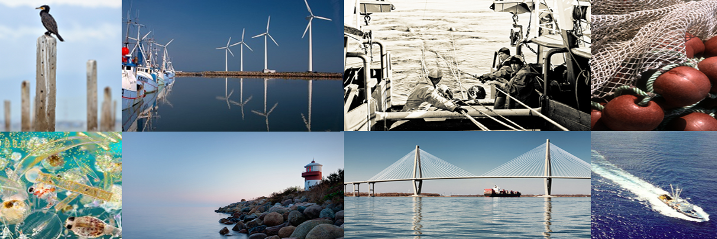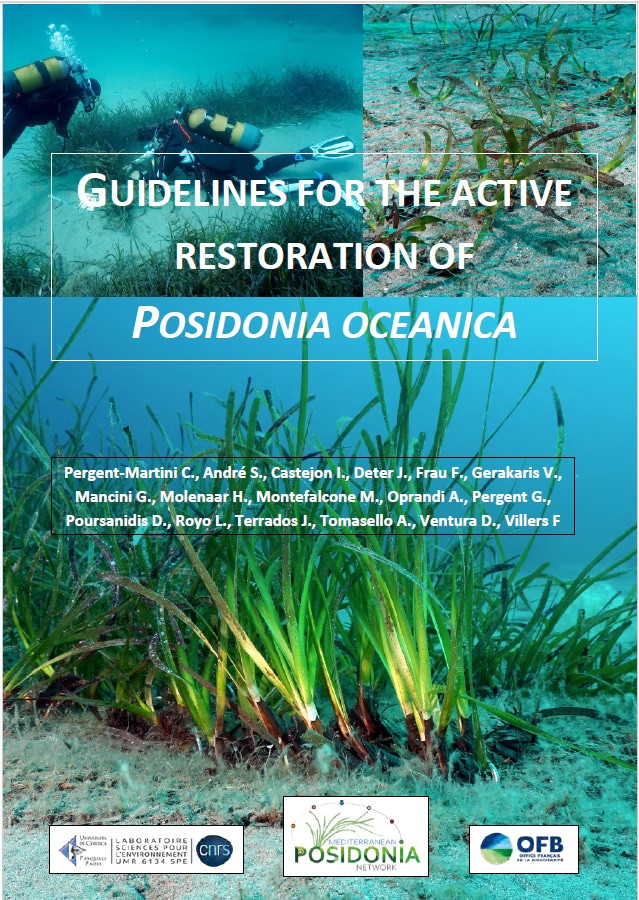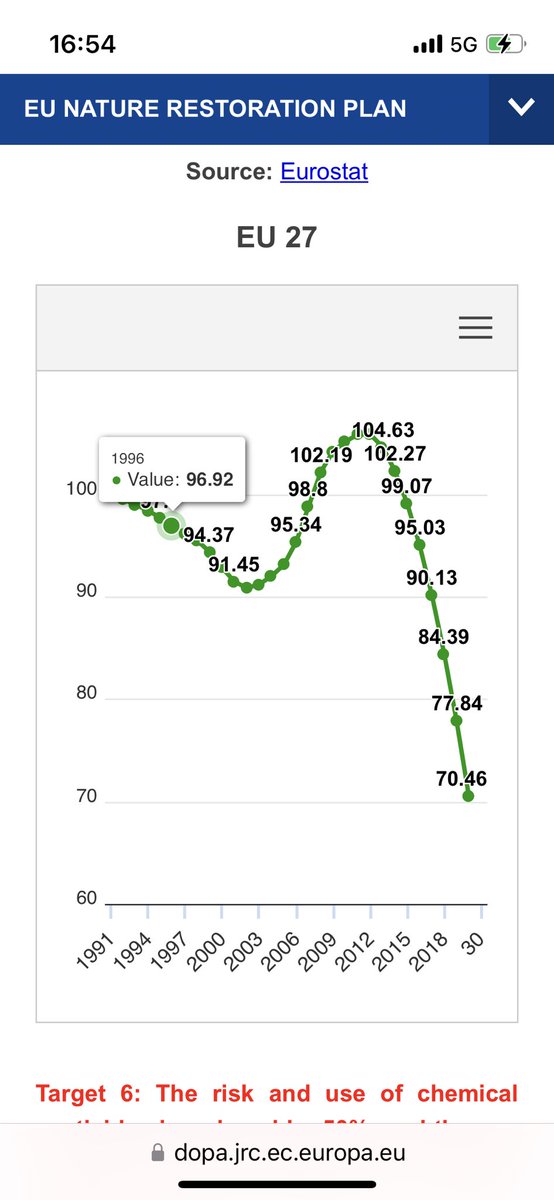
Francois Bastardie
@navigate4sea
Navigating the future & facing challenges ahead in the use of ocean resources | Intertwined marine & fisheries policies | Environmental issues & decarbonisation
Container Shipping Carbon Emissions Reach Record High “This is an example of how reducing carbon emissions falls down the priority list” #decarbonisation marinelink.com/news/container…
FAO report finds carbon stocks in grasslands are dropping, signaling need for resilient soil practices, including less intense livestock grazing #SoilHealth #SDGs 2, 13, 15 #ClimateAction @FAOKnowledge openknowledge.fao.org/server/api/cor…
Starting soon! 🔴9:30h CET: #STOAPanel in #EUParliament With study outcomes on innovation in water & ocean (#WaterKIC @EITeu) & sustainable #fishing methods 👉Interview with study author @navigate4sea: sciencemediahub.eu/2024/09/25/pre… 📺Watch live: europa.eu/!48KK9k
#30DayMapChallenge - Day 28: The Blue Planet 🌎 #DYK you can visualise global Blue Ocean 🔵 variables using #CopernicusMarine 🌊 #OpenData❓ 🔽 Sea Water salinity🧂across the oceans on 14 November Explore the data on the #MyOceanViewer 👇data.marine.copernicus.eu/-/pktui7mi6f
🗓️Tomorrow at 9:30h CET: #STOAPanel in #EUParliament with study presentations on: ✅The fields of water & ocean🌊 - @EITeu Knowledge & Innovation Community (#WaterKIC) ✅Fishing🐟- alternatives for bottom trawling 🔗Watch live, studies & interview: europa.eu/!hny6ft
EU Member States can make a positive impact by assessing social, economic, and environmental impacts of fishing quotas, particularly for coastal communities. Improving criteria under Article 17 can reduce emissions, protect habitats, and strengthen climate resilience. More ⤵️
“changing dietary patterns is not only the main means of decreasing quantified health hidden costs, but also a very effective way of reducing the quantified environmental hidden costs by freeing land, reducing and sequestering greenhouse gases and reducing nitrogen emissions.”
The @FAO State of Food and Agriculture 2024 highlights the hidden costs in #agrifoodsystems, underscoring the need for innovative policies & partnerships. 💡 🤝 #SOFA2024 #TrueCostOfFood #TrueCostAccounting @MartinVncnt Explore the full report: buff.ly/3YVQfHL
Seabeds might not be quite as exciting as other #BlueCarbon ecosystems but they can be enormously important carbon reservoirs. We've produced 1st estimates/maps for Canada's massive seabeds @Graham_Epstein @sdfuller @Oceans_North: theconversation.com/new-research-s… #NaturalClimateSolutions
Atlas of the Human Planet: 50 years of population growth and urbanisation trends uncovered - European Commission joint-research-centre.ec.europa.eu/jrc-news-and-u…

A study highlights successful #Posidonia restoration with nature-based solutions. While restoration is vital, protecting these habitats comes first! —they take years to fully recover, so restoration shouldn’t serve as a compensation measure #Biodiversity andromede-ocean.com/blog/2024/06/1…

The EU Biodiversity Strategy Dashboard tracks progress (or serious setbacks!) on restoring nature—like reversing pollinators decline in farmlands: dopa.jrc.ec.europa.eu/kcbd/EUBDS2030… #BiodiversityLoss


Reversing the decline of wild pollinators in the EU and contributing to the global action with the EU Pollinators initiative and Nature Restoration Law. Effort for surveying habitat quality, landscape features, and #pesticides pressure… environment.ec.europa.eu/topics/nature-…
“Many plant species may already be functionally extinct” #ecologicalDebt researchgate.net/publication/30…
🚨 Urgent action needed to #SaveSoil Every year, 1⃣ billion tonnes of #EUSoil is affected by erosion, threatening our competitiveness, food security, biodiversity & resilience to climate change More in the latest report on the state of soils in Europe 👉 europa.eu/!wvhfrw
Tomorrow @EU_ScienceHub soil team will present the long-waited THE STATE OF SOILS IN EUROPE report🤎 In collaboration with @EU_ENV @EUEnvironment Last report back to 2010➡️ publications.jrc.ec.europa.eu/repository/han… Stay tuned for live updates and download link🤩
…retailers & consumers also play a crucial role in minimizing food waste. Reducing overstocking, improving food storage, and making more conscious purchasing decisions can help build a more sustainable food system for everyone
Quite the opposite—low-impact fisheries can actually enhance food security by preserving habitats and species, they contribute to a healthier environment, which supports the stability of food supplies. However, efforts to reduce waste should not stop at the fishing stage….
Quite the opposite—low-impact fisheries can actually enhance food security by preserving habitats and species, they contribute to a healthier environment, which supports the stability of food supplies. However, efforts to reduce waste should not stop at the fishing stage….
Food waste in the #seafood value chain is an issue that, if addressed, will improve #foodSecurity and sovereignty. We can reduce bycatch & waste with selective fishing. The EU food security is not at risk, it’s about smarter, more #sustainable harvesting. openknowledge.fao.org/items/f38e269a…
Reversing nature’s decline is key to future food security. In the EU, 84% of crops rely on insect pollination, 81% of protected habitats are in poor state, making habitat restoration essential. #HabitatRestoration #ClimateResilience #Health #Sustainability op.europa.eu/en/publication…
Food waste in the #seafood value chain is an issue that, if addressed, will improve #foodSecurity and sovereignty. We can reduce bycatch & waste with selective fishing. The EU food security is not at risk, it’s about smarter, more #sustainable harvesting. openknowledge.fao.org/items/f38e269a…
Europe's waters continue to be impacted by chemicals, long lived pollutants, predominantly by pollution from coal-powered energy generation and diffuse pollution from agriculture… surface waters achieving good chemical status = 29%. #EEA report eea.europa.eu/en/analysis/pu…
Europe's waters continue to be impacted by chemicals, long lived pollutants, predominantly by pollution from coal-powered energy generation and diffuse pollution from agriculture… surface waters achieving good chemical status = 29%. #EEA report eea.europa.eu/en/analysis/pu…